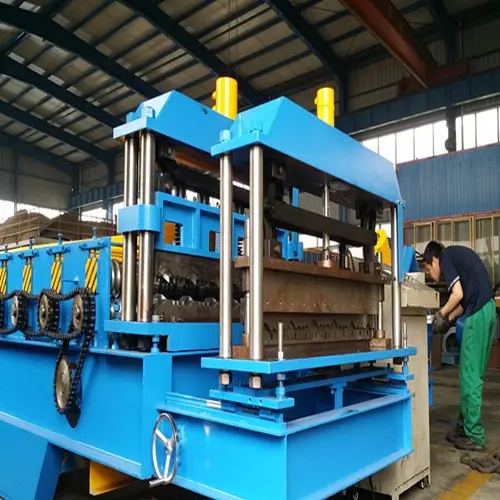
The Importance of Fence Panel Welding Machines in Modern Manufacturing
In the realm of modern manufacturing, efficiency and precision play crucial roles in determining the success of production processes. One of the significant advancements in this area is the fence panel welding machine, designed specifically for the fabrication of high-quality fence panels. These machines have revolutionized the way fence panels are produced, ensuring not only speed but also reliability and durability in the final products.
What is a Fence Panel Welding Machine?
A fence panel welding machine is a specialized piece of equipment that automates the process of welding together various components of fence panels. The machine typically consists of a welding mechanism, a control system, and loading/unloading systems that streamline the welding process. With various configurations available, these machines can handle different materials, including aluminum, steel, and wire mesh, making them versatile for diverse manufacturing needs.
Advantages of Using Welding Machines
1. Increased Efficiency Traditional methods of fence panel fabrication can be labor-intensive and time-consuming. By utilizing welding machines, manufacturers can significantly speed up production rates. Automated machinery can produce multiple panels simultaneously, drastically reducing lead times and increasing overall output.
2. Precision and Quality Modern welding machines are equipped with advanced technology, such as computer controls and sensors, that ensure consistent weld quality. This precision minimizes the risk of defects and ensures that every panel meets the stringent quality standards required in the industry. The result is a stronger, more durable product that can withstand environmental stressors.

3. Cost-Effectiveness While the initial investment in a fence panel welding machine may be considerable, the long-term savings can be substantial. By reducing labor costs, minimizing material waste, and increasing production rates, manufacturers often see a quick return on their investment. Additionally, the reduced risk of human error contributes to lower costs associated with rework and quality control.
4. Flexibility in Design Many fence panel welding machines allow for customization in design, enabling manufacturers to produce a wide variety of panel styles and sizes. This adaptability is crucial in a competitive market where customer preferences can vary widely. Whether it’s decorative fencing or functional barriers, manufacturers can quickly adjust their production lines to meet specific client demands.
5. Improved Safety Automation of the welding process reduces the exposure of workers to hazardous conditions associated with manual welding. Modern machines are designed with safety features that protect operators and minimize accidents, contributing to a safer workplace.
Applications of Fence Panel Welding Machines
Fence panel welding machines are widely used in various sectors, including construction, agriculture, and industrial applications. In construction, they produce security fencing, while in agriculture, they create enclosures for livestock. Moreover, they play an essential role in producing decorative fencing for residential areas, contributing to aesthetic appeal in housing developments.
Conclusion
In conclusion, the fence panel welding machine is an integral component of modern manufacturing that enhances efficiency, precision, and safety in the production of fence panels. As technology continues to evolve, we can expect further innovations in welding techniques and machinery. Manufacturers adopting these advanced solutions will not only stay competitive but also meet the growing demand for high-quality fencing products in today's market. As industries evolve and consumer needs change, the reliance on automated solutions like fence panel welding machines will undoubtedly increase, shaping the future of the manufacturing landscape.